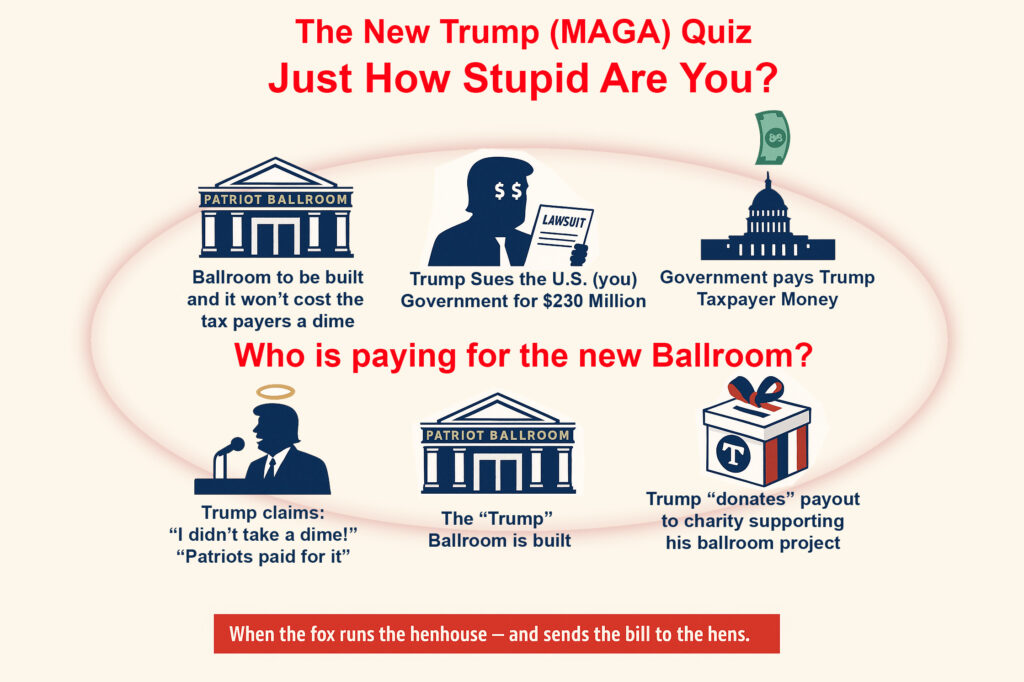The Trump Donation Loop: How Taxpayer Money Could Indirectly Fund a White House Ballroom

/
RSS Feed
The Trump Donation Loop: How Taxpayer Money Could Indirectly Fund a White House Ballroom
Donald Trump has publicly claimed he will seek roughly $230 million from the federal government for past investigations, including the FBI search of Mar-a-Lago and the 2016 campaign inquiry. Simultaneously, he has stated that his planned White House ballroom — sometimes called the “Patriot Ballroom” — will be funded by donations from supporters, not from his personal funds.
At first glance, these statements seem unrelated. But when combined, a potential circular funding scenario emerges that raises serious legal and ethical questions.
Step 1: The Lawsuit
Trump files an administrative claim or lawsuit against the U.S. government, seeking $230 million in damages. He frames this as compensation for alleged government misconduct.
Step 2: The Payout
If the claim succeeds, the government (i.e., taxpayers) would pay Trump. He has suggested that any settlement “would have to go across my desk,” implying he could influence the outcome, though legally the settlement must follow standard Department of Justice procedures.
Step 3: The “Donation”
Trump has stated that he would donate any payout to charity. If the charity in question supports the ballroom project, the government funds could end up financing a building directly associated with Trump’s brand and political legacy, despite his claims of not taking the money personally.
Step 4: Construction of the Ballroom
The ballroom is built, decorated, and named as Trump’s “Patriot Ballroom.” It serves as a personal or political showcase, hosting events that reinforce his image.
Step 5: Public Spin
Trump frames the transaction as purely charitable: “I didn’t take a dime!” However, taxpayers have indirectly funded a project that benefits him personally and politically.
Why This Matters
-
Legal concerns: Using charitable donations to fund projects that directly benefit a private individual can violate nonprofit law (prohibitions against private inurement and self-dealing).
-
Ethical concerns: As president, influencing a government payout that ultimately funds one’s own branded project presents a glaring conflict of interest.
-
Public accountability: Even if Trump technically follows the rules, the appearance of impropriety is extreme, and watchdogs would likely investigate.
Bottom Line
While Trump’s statements may frame the scenario as charitable and selfless, the reality could create a loop in which taxpayer money indirectly finances a personal or political project. It’s a situation that raises questions about governance, ethics, and the limits of presidential power.



Comments are Disabled